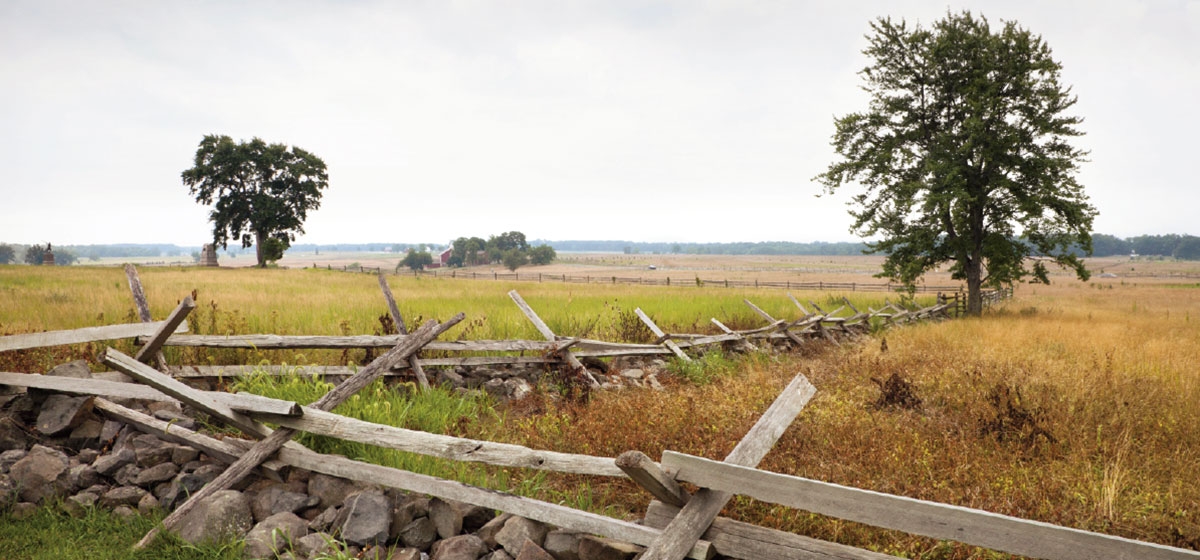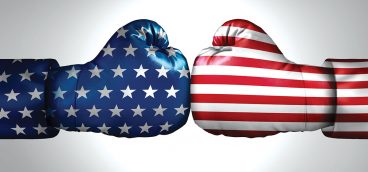
On a beautiful April Sunday, I got up early and drove to Gettysburg. July marks the battle’s 150th anniversary, and I had signed up for a two-hour horseback battlefield tour.
I’m not a history buff, but I am an American, and Gettysburg has always held a unique gravity. We had a relative who disappeared during the Civil War, and what happened to him was a mystery, until the family learned 20 years later he’d been killed at Gettysburg.
Driving over, I recalled the salient facts of my three previous visits. When I was 7, I didn’t get to buy the incredible toy rifle I wanted. At 26, I met with the Gettysburg Times publisher to discuss buying it; my glorious dream dissolved when he mentioned the price tag. Ten years later, at Little Round Top, my young daughter slid off a giant granite slab and fell 7 feet onto another rock. She wasn’t hurt, but that ended our tour.
This time would be different. Six of us mounted our horses, led by licensed guide Andie Donahue, whose knowledge is vast. We rode the trail taken by Gen. Robert E. Lee as he surveyed his troops. On either side would have been the tents and fires of many of the 75,000 Confederate soldiers who stood as Lee passed. We reached the spot where Lee made camp and saw his vantage point of the battle.
We rode through magnificent forests with huge trees that had witnessed the battle, discussing strategies, men and mishaps. We paused at an old barn, where Pickett’s Charge was staged and realized that, in a car, you can’t see the contours of the rolling hills or understand that those contours protected the Confederate soldiers until they were near the Union line. In short, the $115 guided tour was among the best two hours I’ve spent in years. (If you’re interested, visit confederatetrails.com)
Gettysburg was the largest battle ever fought in the Western Hemisphere, and it marked the Civil War’s turning point. Of the 160,000 soldiers involved, some 51,000 were casualties. In November 1863, President Abraham Lincoln rose, sickened perhaps by smallpox, and delivered the greatest 268 words in American history. It seems “altogether fitting” to reprint them here.
Douglas Heuck
Publisher/Editor
Four score and seven years ago our fathers brought forth on this continent a new nation, conceived in liberty, and dedicated to the proposition that all men are created equal.
Now we are engaged in a great civil war, testing whether that nation, or any nation, so conceived and so dedicated, can long endure. We are met on a great battlefield of that war. We have come to dedicate a portion of that field as a final resting place for those who here gave their lives that that nation might live. It is altogether fitting and proper that we should do this.
But, in a larger sense, we cannot dedicate, we cannot consecrate, we cannot hallow this ground. The brave men, living and dead, who struggled here, have consecrated it, far above our poor power to add or detract. The world will little note, nor long remember what we say here, but it can never forget what they did here. It is for us the living, rather, to be dedicated here to the unfinished work which they who fought here have thus far so nobly advanced. It is rather for us to be here dedicated to the great task remaining before us, that from these honored dead we take increased devotion to that cause for which they gave the last full measure of devotion, that we here highly resolve that these dead shall not have died in vain, that this nation, under God, shall have a new birth of freedom, and that government of the people, by the people, for the people, shall not perish from the earth.





